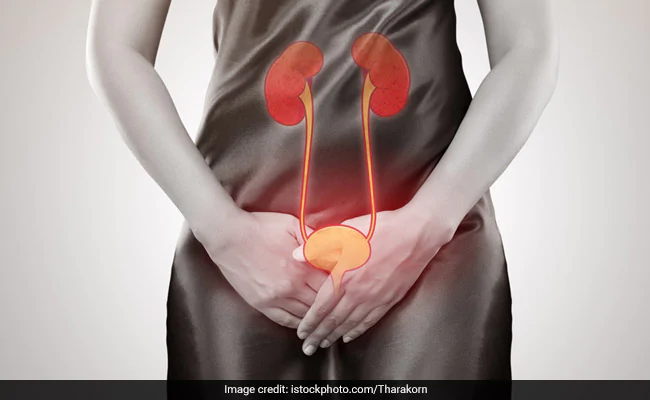- Our Doctors
- Our Specialities
Centres of Excellence
-
 Centre for Blood Diseases, BMT & Cancer Immunotherapy
Centre for Blood Diseases, BMT & Cancer Immunotherapy -
 Centre for Bone, Joint & Spine
Centre for Bone, Joint & Spine -
 Centre for Critical Care Medicine and ECMO Services
Centre for Critical Care Medicine and ECMO Services -
 Centre for Gastrosciences
Centre for Gastrosciences -
 Centre for Heart & Vascular Care
Centre for Heart & Vascular Care -
 Centre for Nephro-Urosciences
Centre for Nephro-Urosciences -
 Centre for Neurosciences
Centre for Neurosciences -
 Centre for Obstetrics and Gynaecology
Centre for Obstetrics and Gynaecology -
 Centre for Organ Transplantation
Centre for Organ Transplantation
Super Speciality
-
 Advanced Diagnostic and Interventional Radiology
Advanced Diagnostic and Interventional Radiology -
 Anesthesiology & Pain Management
Anesthesiology & Pain Management -
 Clinical Nutrition and Dietetics
Clinical Nutrition and Dietetics -
 Dental and Maxillofacial Surgery
Dental and Maxillofacial Surgery -
 Dermatology
Dermatology -
 Emergency and Trauma
Emergency and Trauma -
 Endocrinology and Metabolic Disease
Endocrinology and Metabolic Disease -
 ENT and Head & Neck Surgery
ENT and Head & Neck Surgery -
 Family Medicine
Family Medicine -
 General and Laparoscopic Surgery
General and Laparoscopic Surgery -
 General Medicine
General Medicine -
 GI Onco Surgery
GI Onco Surgery -
 GI Oncology
GI Oncology -
 GI Surgery, Advanced Laparoscopy and Gastro Oncosurgery
GI Surgery, Advanced Laparoscopy and Gastro Oncosurgery
-
- Key Procedures
- Our Hospitals
- International Patient
- Contact us
-
Quick Links
Blogs

Arthritis - An Overview
Arthritis is a bone disorder that affects the joints in the body. This condition indicates the presence of severe pain, stiffness, and swelling in a joint or multiple joints in the body. There are many types of arthritis but the most common are Osteoarthritis (degenerative bone disease) and Rheumatoid Arthritis (an autoimmune inflammatory condition).
How Does One Get Arthritis?
Most forms of arthritis are thought to be caused by a fault in the immune system that causes the body to attack its own tissues in the joints. This may be inherited genetically. Other forms of arthritis can be caused by problems with the immune system or by a metabolic condition, such as gout or simply degeneration due to old age.
While arthritis mainly occurs in adults, children can be at risk of certain types of arthritis such as those caused by injury and autoimmune diseases. Particular forms of arthritis have a tendency to occur in certain parts of the body. For example, rheumatoid arthritis commonly affects the wrists and knuckles, feet, neck, and larger joints in the limbs while the degenerative joint disease may affect the thumb bases, finger joints, knees, hips, shoulders, and lower spine. Other forms of arthritis target mostly the joints in the spine.
Living With Arthritis
Our bones and joints play a larger role in our daily activities. Arthritis hampers the daily routine and affects the quality of life. Symptoms include pain, swelling, reduced range of motion, and stiffness. You may also experience numbness and tingling sensations.
However, with the right treatment and approach, you can manage your symptoms. Whatever condition you have, remaining physically active will help you stay mobile and will be good for your general health. Treatment options such as Medication, physiotherapy or sometimes surgery helps reduce symptoms and improve quality of life.
Preventing Arthritis
You can’t always prevent arthritis. Some causes, such as age, family history, and sex (many types of arthritis are more common in women), are out of your control. However, a few healthy habits can help reduce your risk of developing painful joints as you get older. Many of these practices — such as exercising and eating a healthy diet — help prevent other diseases, too.
Arthritis usually affects older adults, mostly those above the age of 50. Maintaining a healthy weight, controlling your blood sugar, regular exercise, and diet, especially foods rich in omega-3 fatty acids, are recommended. Preventive health checks in your 30s help in the early diagnosis of arthritis and other musculoskeletal disorders. A healthy diet with whole grain, protein, fats, and fibre, exercise, keeping physically fit and quitting unhealthy behaviors such as alcohol, smoking, chronic stress inducing activities, go a long way in preventing various chronic diseases.
Latest Posts
-
 Awake Craniotomy Jul 12, 2022
Awake Craniotomy Jul 12, 2022 -
 Curing Constipation Jul 12, 2022
Curing Constipation Jul 12, 2022 -
 The ‘Gut Health’ Buzz Jul 12, 2022
The ‘Gut Health’ Buzz Jul 12, 2022 -
 Tips to Prevent UTI Jul 12, 2022
Tips to Prevent UTI Jul 12, 2022
Categories
- Clinical Nutrition and Dietetics
- Endocrinology and Metabolic Disease
- General and Laparoscopic Surgery
- General Medicine
- Physical Medicine and Rehabilitation
- Psychiatry
- Centre for Heart & Vascular Care
- Centre for Bone, Joint & Spine
- Centre for Neurosciences
- Centre for Gastrosciences
- Centre for Nephro-Urosciences
- Centre for Blood Diseases, BMT & Cancer Immunotherapy
- Centre for Obstetrics and Gynaecology

 +91 9393 108 108
+91 9393 108 108

















































